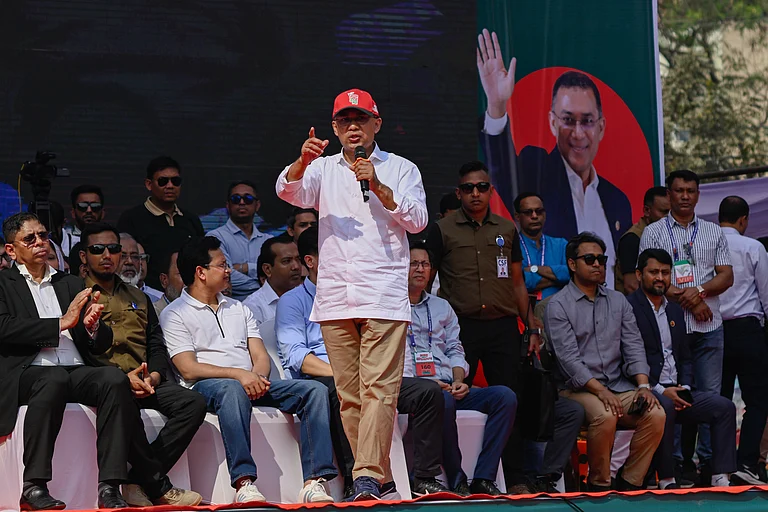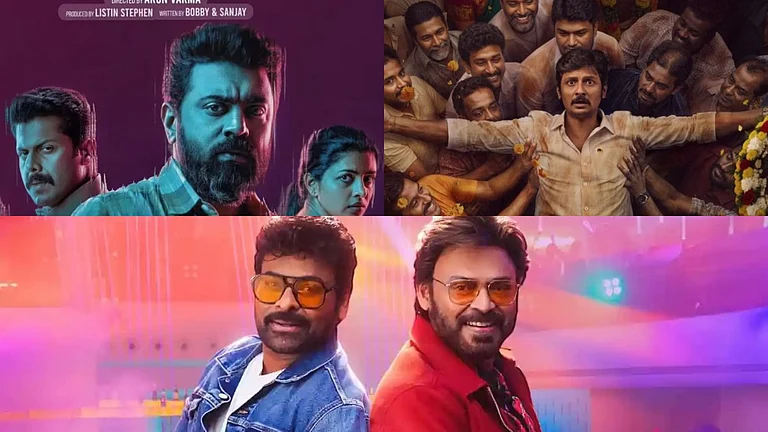Anand Pandit, who has produced films including ‘The Big Bull’ and ‘Chehre’ under his banner Anand Pandit Motion Pictures and is gearing up for the release of "Thank God", "Swatantra Veer Savarkar" "Bal Shivaji" in 2023, is ecstatic with the rise of regional cinema in recent times.
In an interview with Outlook, he says that the wide dissemination of diverse content and the success of films like 'Baahubali: The Beginning' in 2015 and 'RRR', 'Pushpa', and 'KGF' subsequently expanded the reach of regional cinema in a dramatic way. “OTT platforms have also done their bit to demolish language barriers and made even international content accessible so there is no reason why we should not enjoy diverse content from our own regional industries,” he says.
Pandit, who is working with stellar casts including Ajay Devgn, Rakul Preet Singh, Sidharth Malhotra, Randeep Hooda, and many more in his forthcoming projects, says that as long as a story has pan-Indian resonance, it will succeed.
“Be it a Malayalam thriller like 'Pulimurugan' or a Tamil crime drama like 'Visaranai', there is an audience for a good film across the country. These success stories show that a new wave of writers and directors is now changing the rules of entertainment. Today, a single film can be made in multiple languages because as creators we are becoming aware of multiple demographics we can potentially cater to. New marketing techniques have also expanded the market of films that were once only watched in specific regions. The so-called North and South divide is increasingly becoming negligible as well because young people travel to different parts of the county these days to live and work and enjoy the entertainment on offer in their new environments,” he says.
Pandit says that the pandemic has been challenging for all industries and what has changed is also the palate of the Indian audience because of the diverse choices available to them across OTT platforms.
“It is natural that today people will go to a theatre to watch a film only if it offers them something they cannot enjoy at home. This is why larger-than-life characters are now making a come back on the big screen because they bring with them memories of an era when going to the movies was an exciting event,” he says and adds that regional movies have recovered faster than Hindi cinema because there is a certain clarity in the thought-process of the makers while Hindi films seem to be suffering from a lack of conviction.
“But honestly, when has any industry been able to patent formula of success? It will take just one big hit to stop all the conversations about the future of the Hindi film industry through this phase is undoubtedly teaching us a lot about smarter budgeting, expanding talent pools and digging deep to find fresh concepts. It is also great that the integration of artistic talent is happening across industries like never before. Our stories can only grow richer from this point and I truly believe that the best is yet to be,” he says,
As a producer, Pandit is working in multiple languages, including Hindi, Marathi, and Gujarati and says that there's no language barrier in cinema anymore.
“Good cinema and entertainment have a universal resonance. That is why Satyajit Ray is a global icon, every film lover in the world is aware of who Steven Spielberg is and Hindi film stars have a worldwide following. In India too, for decades now we have been watching Hollywood films in theatres and now finally regional cinema is also gaining a national audience and earning massive box-office returns.
“The dissemination of regional content across OTT platforms with subtitles and far-reaching social media marketing has further expanded the audience for regional movies so yes, language barriers have ceased to exist. Every industry is striving to grow beyond its native market. A case in point is my recent Gujarati production, 'Fakt Mahilao Maate' which has got a bumper opening across the country because of its family-friendly theme and relatable story,” he says.
Pandit says that the future of Indian cinema is all about a seamless confluence of talents across geographical and linguistic boundaries


























